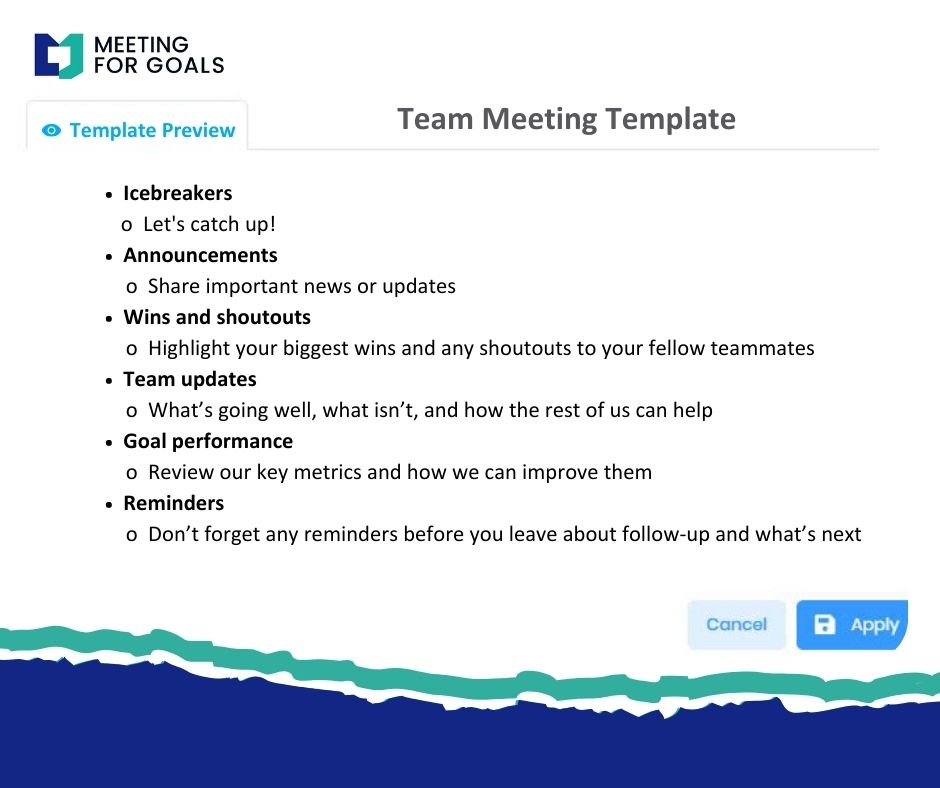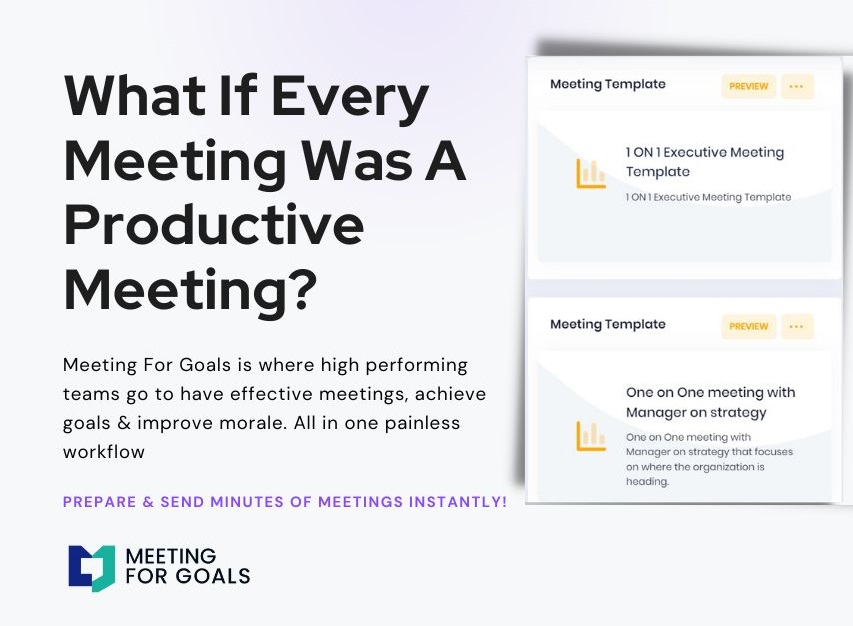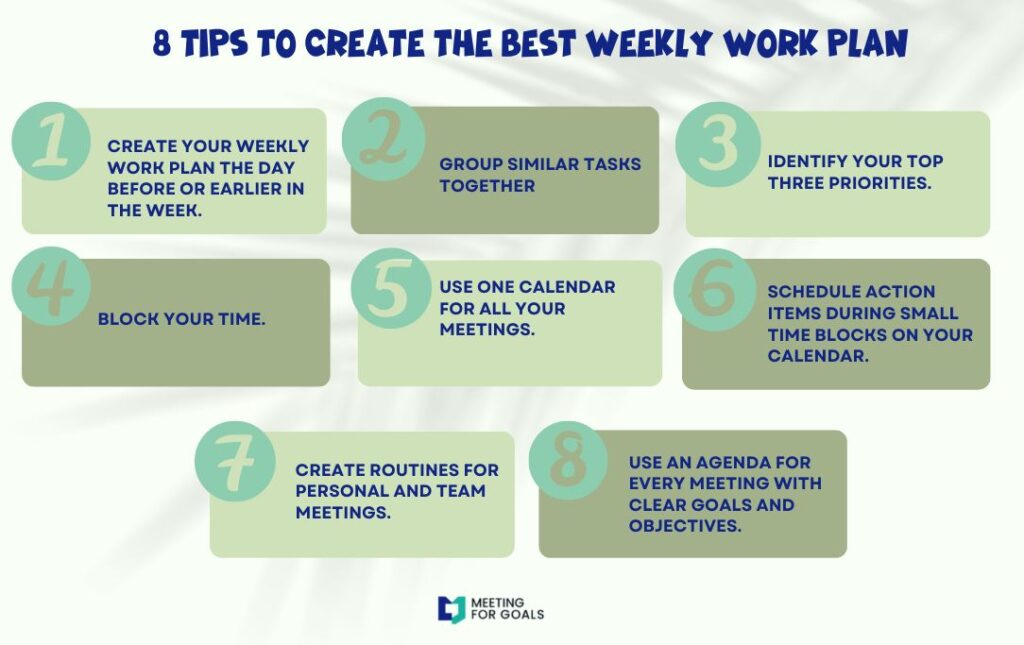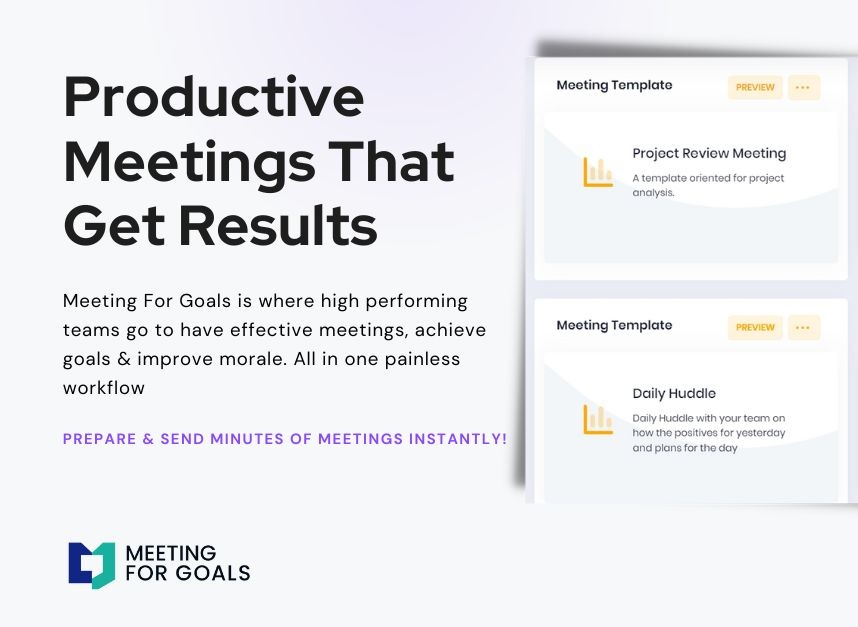The Keyword Mentor Meeting: A Powerful Strategy for High-Performing Teams
Excerpt:
Meetings are the backbone of high-performing teams. But without the right structure, they can quickly become unproductive time sinks. A Keyword Mentor Meeting is a strategic approach that ensures meetings are goal-driven, focused, and impactful.
In this guide, we’ll break down what a Keyword Mentor Meeting is, how to set one up for success, and best practices to ensure your meetings drive real results. If you’re a high-level executive looking to improve meeting efficiency and align discussions with company goals, this guide is for you.
Want to transform your meetings into productive, goal-driven sessions? Sign up for Meeting For Goals now and start optimizing your team’s performance today!
2 Minute Video
Watch a 2 minute demo of our meeting management software in action
Introduction
Meetings are essential for collaboration, decision-making, and driving company goals forward. However, many organizations struggle with unproductive meetings that waste time, lack clear objectives, and fail to align with business priorities.
At Meeting For Goals, we believe that high-performing teams thrive when meetings are purposeful, efficient, and directly tied to company objectives. Our software helps teams streamline their meeting workflow, ensuring that every discussion leads to actionable outcomes.
One of the most effective meeting strategies we advocate for is the Keyword Mentor Meeting. This structured approach ensures discussions remain focused, strategic, and aligned with key business goals.
In this blog, we’ll cover:
- What a Keyword Mentor Meeting is and why it’s valuable
- How to set up and run a successful Keyword Mentor Meeting
- Best practices to ensure meetings lead to measurable improvements
- How Meeting For Goals can help streamline and enhance your meetings
By the end of this guide, you’ll have a clear framework for implementing Keyword Mentor Meetings in your organization, leading to more productive discussions, better decision-making, and improved team performance.
Adding an Agenda
How to add an agenda instantly on Meeting For Goals
Understanding the Keyword Mentor Meeting
What is a Keyword Mentor Meeting?
A Keyword Mentor Meeting is a structured meeting format where a mentor—typically a senior leader or subject matter expert—guides discussions around a central theme or keyword that aligns with the company’s goals. This keyword serves as the focal point, ensuring that conversations stay relevant and impactful.
Objectives and Goals of the Meeting
The primary objectives of a Keyword Mentor Meeting include:
- Aligning discussions with strategic business goals
- Providing mentorship and guidance to team members
- Encouraging accountability and responsibility
- Ensuring meetings remain focused and productive
By structuring meetings around a central keyword, teams can avoid unnecessary tangents and keep discussions aligned with key performance indicators (KPIs).
How Keyword Mentoring Aligns with Company KPIs
For executives, ensuring that meetings contribute to overall business success is critical. Keyword Mentor Meetings bridge the gap between strategy and execution by:
- Focusing on measurable outcomes related to company goals
- Encouraging data-driven decision-making
- Ensuring every meeting has a clear purpose and action items
The Role of a Mentor in Guiding Discussions
A mentor plays a crucial role in ensuring the success of the meeting. Their responsibilities include:
- Setting the tone and direction of the meeting
- Encouraging participation and engagement
- Providing insights and expertise to guide discussions
- Ensuring accountability by assigning action items
By implementing Keyword Mentor Meetings, organizations can ensure that meetings are not just discussions but strategic sessions that drive real business impact.
Setting Up for Success
Key Preparation Steps for Organizing a Keyword Mentor Meeting
Preparation is key to a successful Keyword Mentor Meeting. Here’s how to set up for success:
1. Identify Key Stakeholders
Determine who needs to be in the meeting. This typically includes:
- The mentor (senior leader or expert guiding the discussion)
- Relevant team members who contribute to the topic
- Decision-makers who can approve actions and next steps
2. Conduct Pre-Meeting Surveys or Information Gathering
Gathering insights before the meeting helps ensure discussions are data-driven. Consider:
- Sending out pre-meeting surveys to collect input on key challenges
- Reviewing previous meeting notes to track progress
- Analyzing KPIs to align the discussion with company goals
3. Set Clear, Measurable Objectives
Every meeting should have a defined purpose. Ask:
- What problem are we solving?
- What outcome do we want to achieve?
- How will we measure success?
Tips for Effective Agenda Creation
An effective agenda keeps meetings structured and efficient. Best practices include:
- Using a keyword to define the meeting’s focus
- Limiting agenda items to avoid information overload
- Allocating time slots for each discussion point
- Assigning discussion leaders to maintain engagement
Utilizing Meeting For Goals Software to Streamline Logistics
Meeting For Goals simplifies meeting preparation by:
- Automating agenda creation
- Providing real-time collaboration tools
- Tracking action items and accountability
Want to ensure your meetings are structured and productive? Sign up for Meeting For Goals today and take control of your meeting efficiency.
Best Practices During the Meeting
Establishing Ground Rules for Engagement
To maximize effectiveness, set clear ground rules:
- Stay focused on the keyword and avoid off-topic discussions
- Encourage active participation from all attendees
- Limit meeting duration to maintain engagement
Techniques to Keep Discussions Focused
- Use a facilitator to steer conversations back to the keyword
- Implement a time-tracking system to ensure efficiency
- Encourage concise contributions to avoid unnecessary delays
Encouraging Accountability and Responsibility
- Assign action items in real time
- Use Meeting For Goals to track ownership and deadlines
- Follow up on previous commitments to ensure accountability
Using Real-Time Data and Metrics
Data-driven discussions improve decision-making. Use:
- Live dashboards to track KPIs
- Performance reports to guide discussions
- Feedback loops to measure meeting effectiveness
Strategies for Fostering Collaboration
- Encourage brainstorming sessions around the keyword
- Use breakout discussions for deeper insights
- Implement interactive tools like polls and Q&A sessions
Action Items and Follow-Up
Capturing Insights and Decisions
- Document key takeaways in Meeting For Goals
- Assign clear action items with deadlines
Tracking Progress and Accountability
- Use Meeting For Goals software to monitor task completion
- Schedule follow-up meetings to assess progress
Ensuring Continuous Improvement
- Collect post-meeting feedback
- Adjust strategies based on insights
By maintaining a structured follow-up process, teams can ensure that meetings lead to tangible results.
Conclusion
A Keyword Mentor Meeting is a powerful tool for improving meeting efficiency, aligning discussions with company goals, and driving accountability. By implementing this structured approach, high-performing teams can transform their meetings into strategic sessions that foster collaboration, innovation, and measurable success.
At Meeting For Goals, we provide the tools to make this process seamless. Our software helps teams:
- Streamline meeting preparation
- Ensure accountability with real-time tracking
- Align discussions with business objectives
If you’re ready to take your meetings to the next level, sign up for Meeting For Goals now and experience the difference!
For additional insights on effective meeting strategies, check out Harvard Business Review’s guide to productive meetings and Forbes’ take on leadership-driven discussions.
By following this guide, executives and team leaders can implement Keyword Mentor Meetings to enhance productivity, improve decision-making, and drive their organizations forward. 🚀




